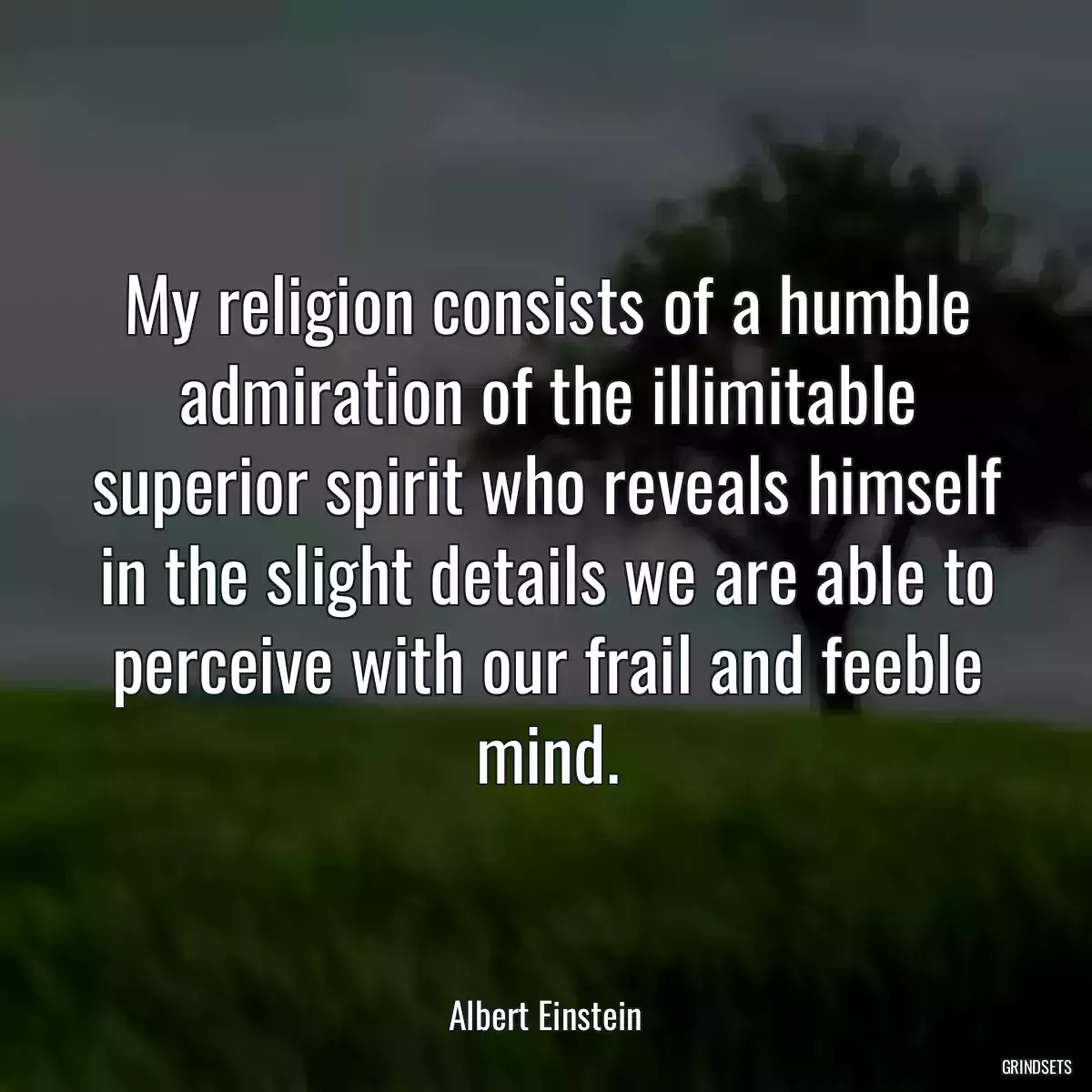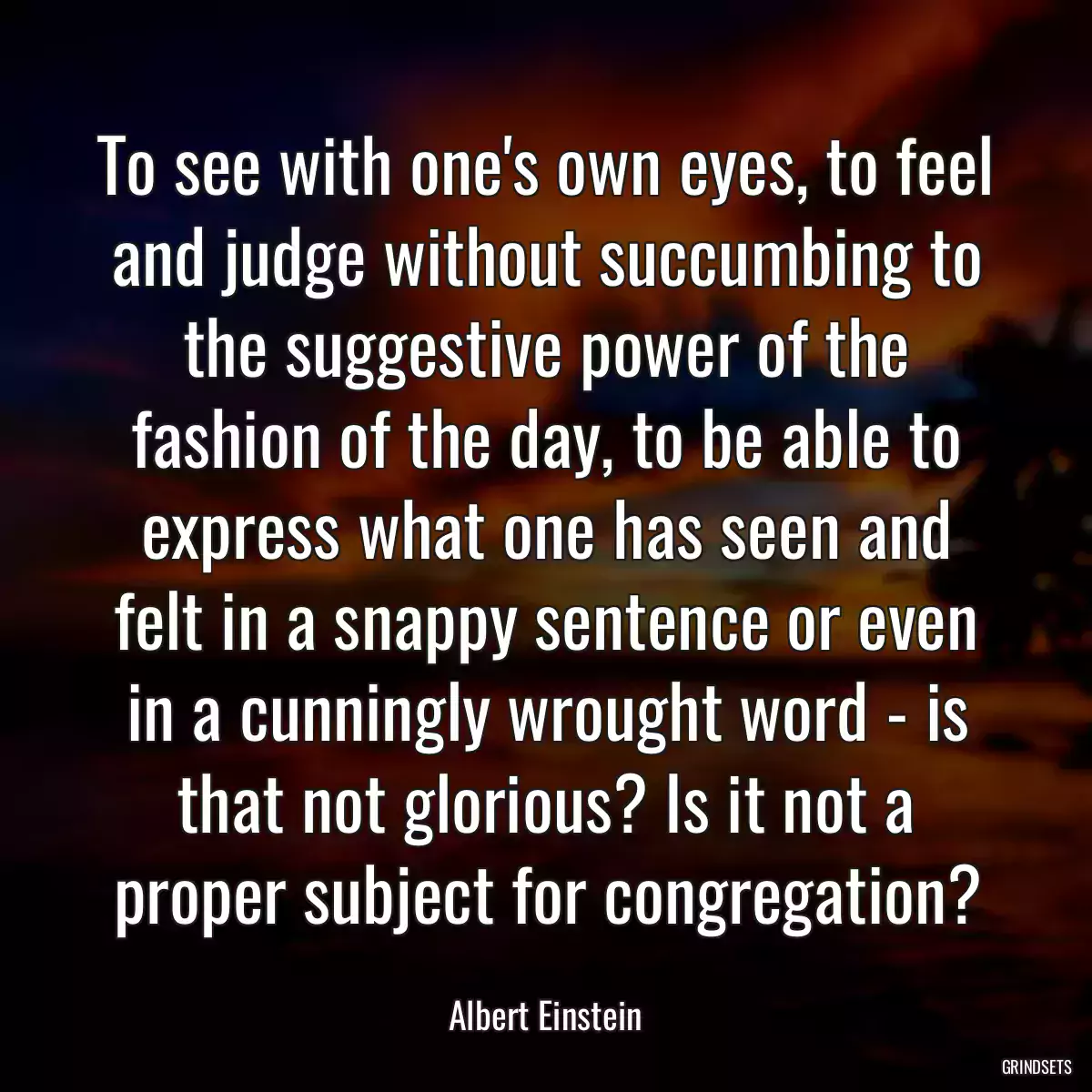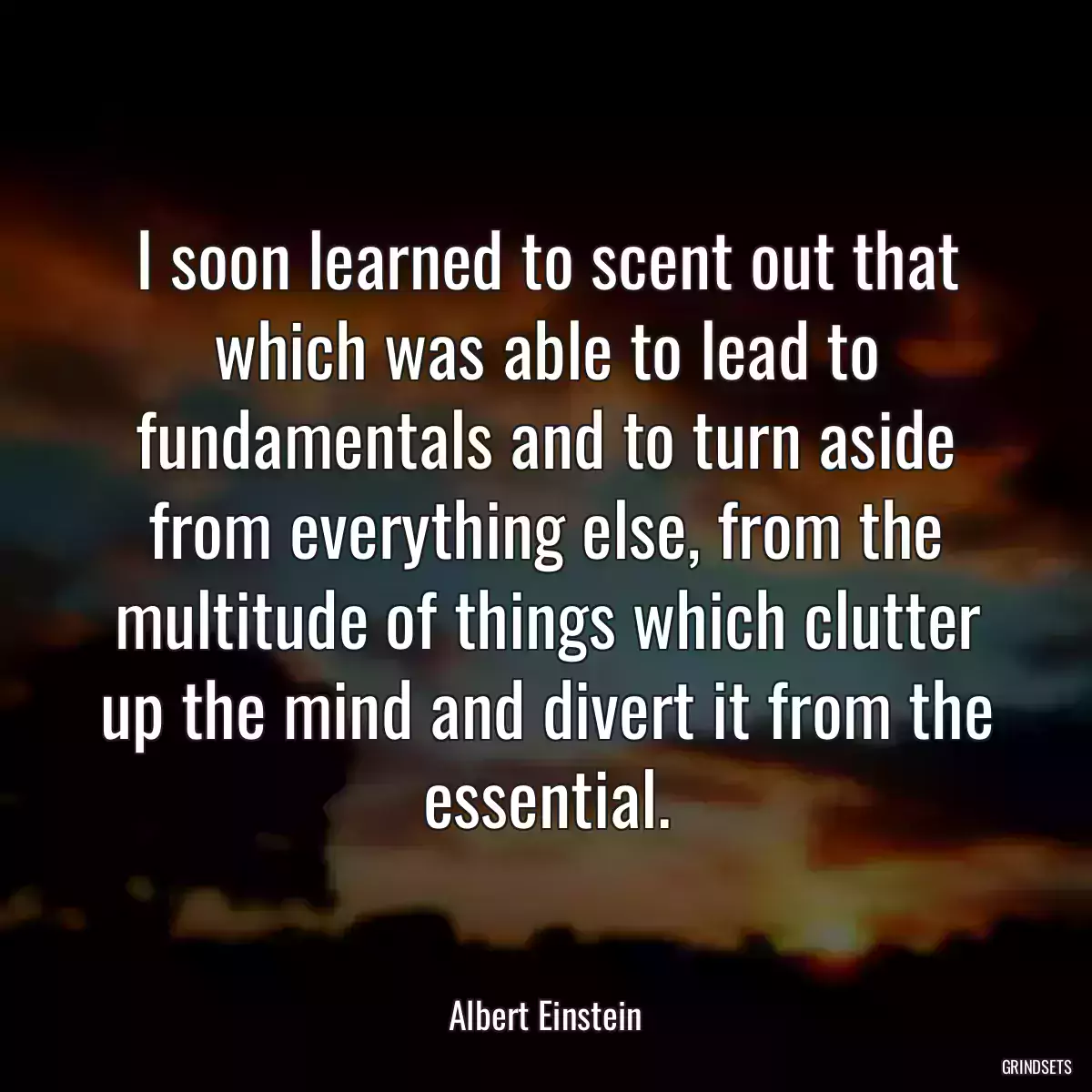
Quotes Albert Einstein - page 5
Find dozens of Albert Einstein with images to copy and share.

The value of a man should be seen in what he gives and not in what he is able to receive.
Make everything as simple as possible, but not simpler.
My success wasn't so much due to intelligence, but the fact that I stuck with problems longer.
You may also like
To be sure, the doctrine of a personal God interfering with natural events could never be refuted, in the real sense, by science, for this doctrine can always take refuge in those domains in which scientific knowledge has not yet been able to set foot.
Weakness of attitude becomes weakness of character; it becomes lack of power to act with courage proportionate to danger. All this must lead to the destruction of our intellectual life unless the danger summons up strong personalities able to fill the lukewarm and discouraged with new strength and resolution.
When I think of the most able students I have encountered in my teaching - I mean those who have distinguished themselves not only by skill but by independence of thought - then I must confess that all have had a lively interest in epistemology.
When you won't be able to describe it simply just, you don't are aware of it well sufficient.
Human beings can attain a worthy and harmonious life only if they are able to rid themselves, within the limits of human nature, of the striving for the wish fulfillment of material kinds. The goal is to raise the spiritual values of society.

People start their lives at last when they are able to live for something other than themselves.
How was I able to live alone before, my little everything? Without you I lack self-confidence, passion for work, and enjoyment of life--in short, without you, my life is no life. [Written to his wife, Mileva]
Well, I have considered myself to be very fortunate in that I have been able to do mostly only that which my inner self told me to do... I am also aware that I do receive much criticism from the outside world for what I do and some people actually get angry at me. But this does not really touch me because I feel that these people do not live in he same world as do I.
What can the schools do to defend democracy? Should they preach a specific political doctrine? I believe they should not. If they are able to teach young people to have a critical mind and a socially oriented attitude, they will have done all that is necessary.
Certainly there are things worth believing. I believe in the brotherhood of man and the uniqueness of the individual. But if you ask me to prove what I believe, I can't. You know them to be true but you could spend a whole lifetime without being able to prove them. The mind can proceed only so far upon what it knows and can prove. There comes a point where the mind takes a leap—call it intuition or what you will—and comes out upon a higher plane of knowledge, but can never prove how it got there. All great discoveries have involved such a leap.
It seems to me that the idea of a personal God is an anthropological concept which I cannot take seriously. I feel also not able to imagine some will or goal outside the human sphere. My views are near those of Spinoza: admiration for the beauty of and belief in the logical simplicity of the order which we can grasp humbly and only imperfectly. I believe that we have to content ourselves with our imperfect knowledge and understanding and treat values and moral obligations as a purely human problem-the most important of all human problems.
A successful man is he who receives a great deal from his fellow men, usually incomparably more than corresponds to his service to them. The value of a man, however, should be seen in what he gives and not in what he is able to receive.
I said before, the most beautiful and most profound religious emotion that we can experience is the sensation of the mystical. And this mysticality is the power of all true science. If there is any such concept as a God, it is a subtle spirit, not an image of a man that so many have fixed in their minds. In essence, my religion consists of a humble admiration for this illimitable superior spirit that reveals itself in the slight details that we are able to perceive with our frail and feeble minds.
You may also like

Without changing our pattern of thought, we will not be able to solve the problems we created with our current patterns of thought